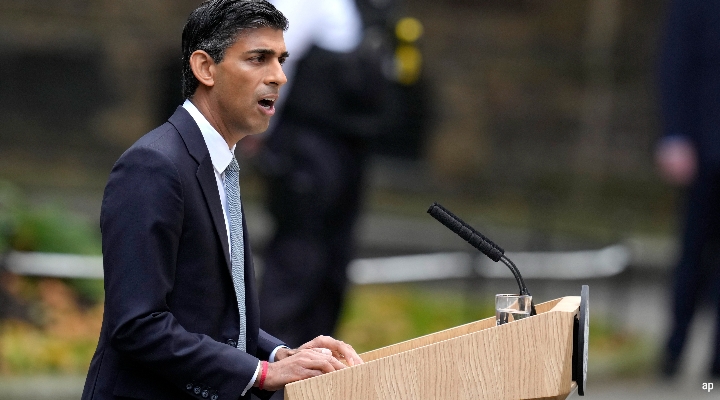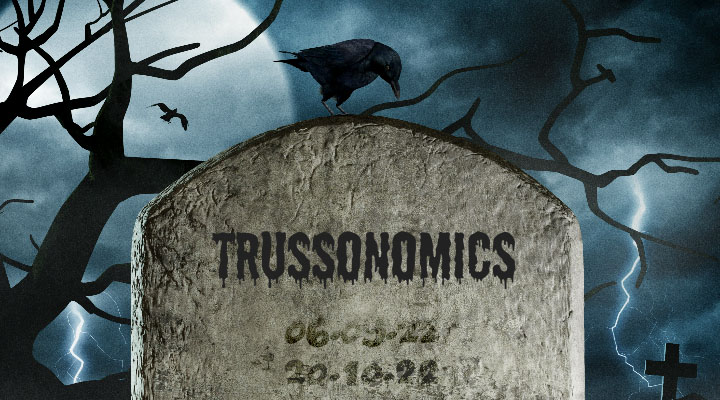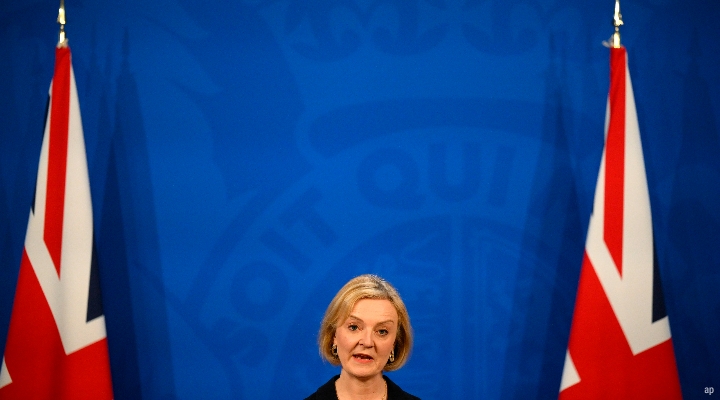
A month ago, final salary pension grabbed the headlines as investors learned that funds had been using risky derivatives to match their liabilities.
This volatility triggered a (successful) intervention by the Bank of England to calm markets. Thankfully, that averted disaster. Pensions are supposed to be the ultimate "invest and forget" asset and with their multi-decade time horizons, as remote from the day-to-day noise of the markets as it’s possible to be.
But life has changed. Last month, even people with "safe" pensions started to question the status quo. It’s hard to separate the financial implications from the politics at the moment and there’s a great deal of uncertainty about what the government will do next. Do pensions still represent a good option? And are they stll safe?
All eyes are on October 31, when chancellor Jeremy Hunt will update us on the plans for the country’s finances, post-Trussonomics. We have already been warned nothing is sacred.
Let’s look at the issues currently facing UK pension savers.
What’s Going on With the Triple Lock?
Former prime minister Liz Truss said that the state pension "triple lock", which guarantees the state pension will rise by the higher of earnings, inflation (now 10%) or 2.5% is safe. That would push the state pension above £10,000 a year. But whether that "pledge" has survived the transition to the Sunak/Hunt era remains to be seen. It would be politically awkward to row back, but not unimaginable now. The Conservative party knows how pensioners tend to vote – but in the current climate a 10% increase to pensions would seem generous to the cohort of wealthy, home-owning over-60s who are often loyally blue.
What About Personal Pensions?
Nothing can be taken for granted here either. For many years the pensions industry and personal finance journalists have expected some change to pension tax relief, and the big sea change has never happened. Under current rules, those investing in a pension get a top-up from the government depending on their tax bracket, up to 45% (the tax bracket so controversially scrapped, then restored, in the recent political turmoil). This costs the government around £40 billion a year and rising, according to actuaries.
As chancellor, Sunak was exploring the idea of a flat tax band and relief regime – and enlisted the help of the Office of Tax Simplification, which was then shut down by Kwasi Kwarteng. Accountants would be delighted but a flat tax band would deprive the government of much-needed revenue.
A single rate of tax relief would save billions, however, and would fit the narrative that the better off might pay more. The rationale is that incentivising people to save more for retirement is a good thing, but, awkwardly, the people who earn more benefit the most. Remember, though, more and more people are being dragged into the 40% higher rate tax band in what’s known as "fiscal drag".
As chancellor, Rishi Sunak froze tax bands for five years in his 2021 budget.
Is My DB Scheme Safe?
Were schemes on the brink of collapse? The Bank of England certainly thinks there was a full-scale liquidity event occurring. Without its intervention "it was likely these [LDI-based] funds would have to begin the process of winding up the following morning," Sir Jon Cunliffe, its deputy governor, told the Treasury Select Committee. Thankfully the moment passed.
If you have a final salary pension scheme, there may be some reassuring footnotes from the crisis. The first is that the Bank of England was prepared to step in – and in the end it didn’t need to buy the £65 billion of bonds it pledged to.
The second is that companies are now looking at ways to plug gaps in pension schemes, putting more money in to reduce the risk of another existential event. The final outcome is that the LDI crisis will probably force pension scheme managers to take less risk in the future, and there will be more regulatory scrutiny of the tools used to achieve defined benefits. Pension scheme members may now take a greater interest in how their guaranteed incomes are achieved. The Pensions Regulator, or TPR, now under fire for its role in the short-lived crisis, will no doubt be under pressure to assess its own performance.
Ultimately, there’s another backstop to defined benefit schemes that people forget about – the Pension Protection Fund, which protects pension savers in the event a sponsoring company goes under. Nearly 10 million people in 5,200 DB schemes are under its coverage.
In the myth-busting section on its website it tries to reassure people worried about their employer: "if the employer who provided your DB pension goes out of business, and your scheme doesn’t have enough money to pay you what you were promised, you’ll become a PPF member and we’ll compensate you for your lost pension."
Fortunately this recent turmoil didn’t end up with the PPF stepping in.
Where Does That Leave DC Schemes?
Bond market volatility is not great for pensions generally because bonds are used to smooth out returns as people approach retirement – fixed income assets generally take a bigger proportion of your pension fund as you get older for this reason and equities a smaller part.
With yields rising, government bond prices have fallen – because they go in opposite directions – and that may show up on recent pension statements as a fall in values. The equity markets have been weak this year too so those people getting their annual statement in the autumn may see a fall on 2021’s pension pot values. 2022 has been unusual in recent history because bond and equity markets have fallen together.
Recent turbulence doesn’t change the fact that the pension scheme member in a DC pension scheme continues to run the risks that their fund will not provide for an adequate standard living. Your pot will still rise and fall depending on market moves.
Have We Heard the Last of Liability Driven Investing?
Probably not. The threat to schemes may have passed, but financial companies will still be busy untangling the mess. Recent share prices losses for listed stocks like Legal & General (LGEN) have abated. But the episode will not have been painless for those who sold LDI products, used them to manage risk in pension schemes and for anyone involved in the UK pension industry. Reporting season has already started and the impact of the LDI crisis is starting to be revealed. Asset manage Schroders (SDR) is the latest to do so, saying in a trading update that its Solutions busines has taken a hit. Companies are likely to rely less on derivatives in the future and try to reassure investors they are "derisking" and "deleveraging". That's them effectively saying "we've learned the lessons from September".
Are UK Pensions in Crisis?
The wider picture is that there’s a huge adjustment going on in the financial world as we wean off cheap money. Pensions won’t be spared this dislocation. Inflation is very high, meaning income from pensions is not matching the rising cost of living. Markets are volatile, and that makes long-term investing harder. Finding reliable asset classes with above-inflation returns is a serious challenge for money managers.
As the LDI crisis shows, pensions can’t be neatly divided into "safe" and "risky". Some are better protected than others and make bigger – and legally enforceable – promises about guaranteed payments. Many other schemes are still running deficits that could become serious as time goes on. The state pension isn’t enough to live on alone, so the government wants to encourage people to save more for retirement (hence pension tax relief, ISAs, SIPPS etc). Auto-enrolment has helped ease the burden on the state so far. But investment returns can be disappointing in the short-term.
In reality, pensioners may rely on a combination of the state pension, final salary scheme, a defined contribution scheme, dividend income and even rental income. Some may defer full-time retirement because of the disparity between their income and outgoings such as energy, mortgages and food bills – all of which have risen sharply this year.
According to the Office for Budget Responsibility, the UK government spends more than £100 billion every tax year on state benefits. Can it keep doing so in perpetuity? The pension age is set to creep up in future. But even with the apparent savings that will create, future pensioners may still be unwise to take it for granted.










.jpg)

















